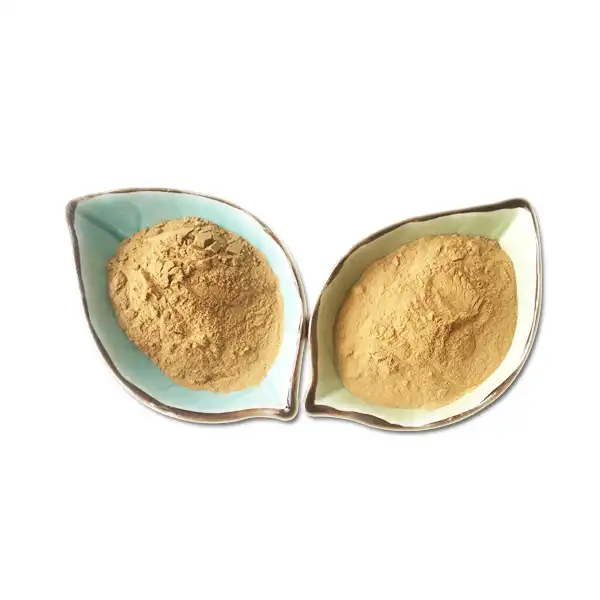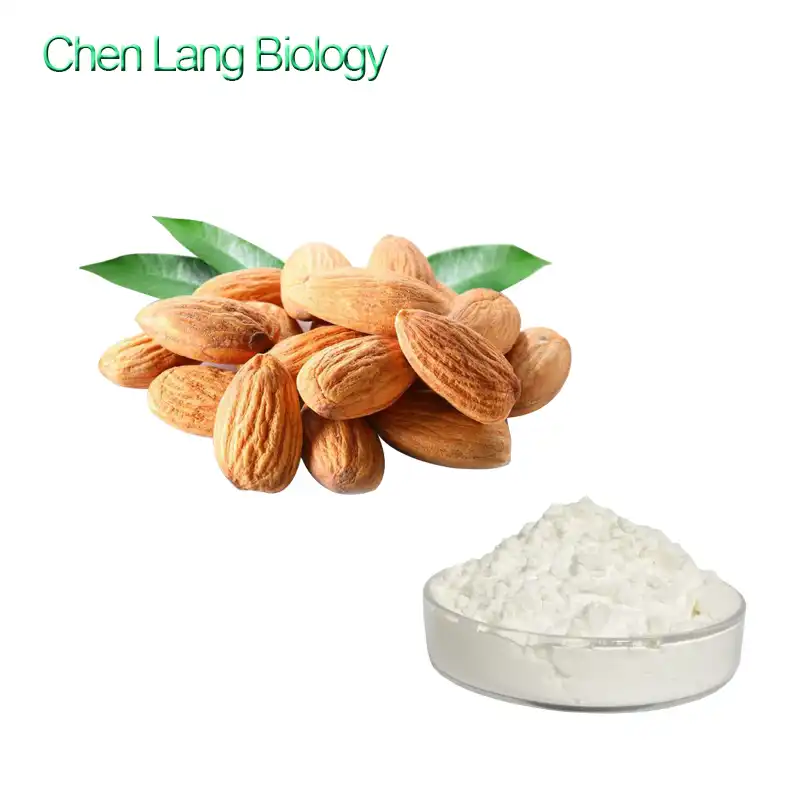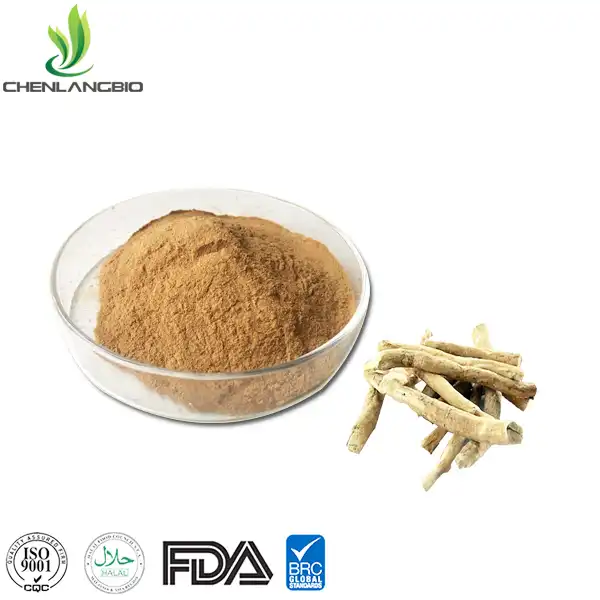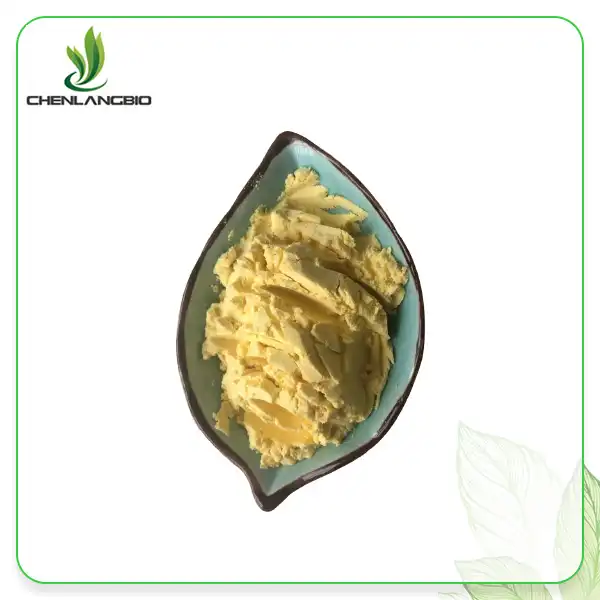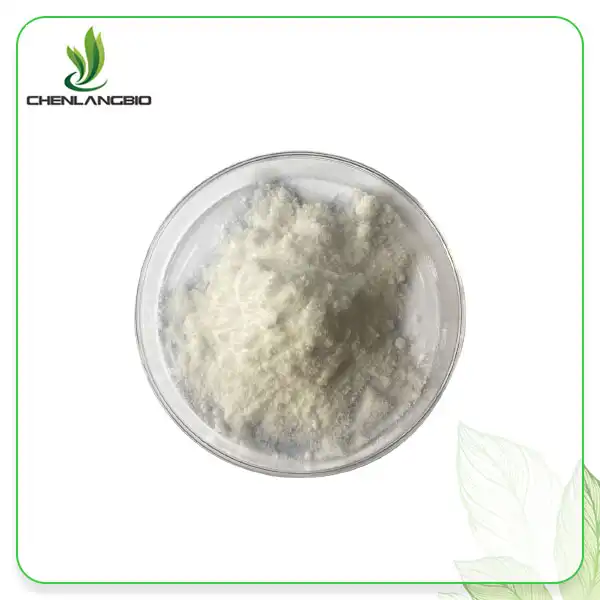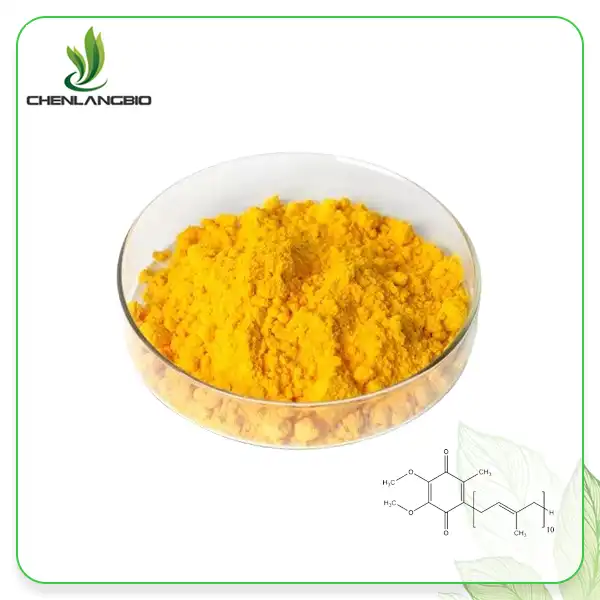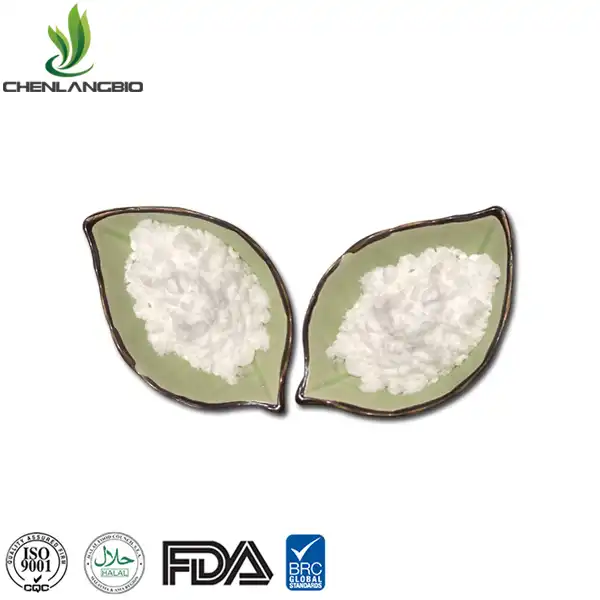Benefits of Water Soluble Coenzyme Q10
2025-01-14 10:49:35
Coenzyme Q10 (CoQ10) is a powerful antioxidant naturally produced by our bodies, playing a crucial role in cellular energy production and protecting cells from oxidative stress. However, as we age, our CoQ10 levels decline, leading many to turn to supplements. Water soluble CoQ10 has emerged as a game-changer in the supplement industry, offering enhanced absorption and bioavailability compared to traditional fat-soluble forms. This blog explores the unique advantages of water soluble CoQ10, its numerous health benefits, and how it particularly supports heart health. Whether you're looking to boost your energy levels, support cardiovascular function, or simply optimize your overall well-being, understanding the benefits of water soluble CoQ10 can be a valuable step in your health journey.
Why Water Soluble CoQ10 is Better for Absorption?
Enhanced Bioavailability
Water soluble CoQ10 offers significantly improved bioavailability compared to its fat-soluble counterpart. The human body is composed of approximately 60% water, making it easier for water-soluble compounds to be absorbed and distributed throughout the body. When CoQ10 is transformed into a water-soluble form, it can easily mix with bodily fluids, allowing for more efficient absorption in the gastrointestinal tract. This enhanced bioavailability means that a larger percentage of the ingested CoQ10 actually reaches the bloodstream and, ultimately, the cells where it's needed most.
Faster Absorption Rate
One of the key advantages of water soluble Coenzyme Q10 is its rapid absorption rate. Traditional fat-soluble CoQ10 supplements require the presence of dietary fats for proper absorption, which can slow down the process and reduce overall efficiency. In contrast, water soluble CoQ10 can be absorbed directly into the bloodstream without the need for fat digestion. This results in a quicker onset of action, allowing users to experience the benefits of CoQ10 supplementation more rapidly.
Increased Cellular Uptake
The water-soluble nature of this form of CoQ10 not only enhances its absorption in the gut but also improves its ability to penetrate cell membranes. Cells can more readily take up water-soluble compounds, ensuring that the CoQ10 reaches the mitochondria - the powerhouses of the cell where it's most needed. This increased cellular uptake translates to more efficient energy production and better antioxidant protection at the cellular level, potentially leading to more pronounced health benefits.
Top Health Benefits of Coenzyme Q10 Supplements
Boosting Energy Production
CoQ10 plays a pivotal role in the production of adenosine triphosphate (ATP), the primary energy currency of cells. By supplementing with water soluble Coenzyme Q10, individuals may experience increased energy levels and reduced fatigue. This is particularly beneficial for those with conditions characterized by low energy, such as chronic fatigue syndrome or fibromyalgia. Moreover, athletes and fitness enthusiasts may find that CoQ10 supplementation helps improve their endurance and recovery times, allowing for more intense and productive workouts.
Powerful Antioxidant Protection
As a potent antioxidant, CoQ10 helps protect cells from oxidative stress caused by free radicals. This protection extends to various tissues and organs throughout the body, including the heart, brain, and skin. By neutralizing harmful free radicals, CoQ10 may help slow down the aging process, reduce inflammation, and lower the risk of chronic diseases associated with oxidative damage. The water-soluble form ensures that this antioxidant protection is delivered more efficiently to cells throughout the body.
Supporting Cardiovascular Health
One of the most well-studied benefits of CoQ10 is its positive impact on heart health. Water soluble CoQ10 supplements have been shown to improve various markers of cardiovascular health, including reducing blood pressure, improving endothelial function, and enhancing the efficiency of heart muscle contraction. For individuals with heart conditions or those at risk of developing cardiovascular disease, CoQ10 supplementation may offer significant protective benefits. It's important to note that while CoQ10 can be a valuable addition to heart health regimens, it should be used in conjunction with, not as a replacement for, conventional medical treatments.
How Water Soluble CoQ10 Supports Heart Health?
Enhancing Myocardial Energy Production
The heart is one of the most energy-demanding organs in the body, requiring a constant supply of ATP to maintain its rhythm and pumping function. Water soluble Coenzyme Q10 plays a crucial role in supporting myocardial energy production by facilitating the electron transport chain in mitochondria. By enhancing the efficiency of ATP production in heart muscle cells, CoQ10 helps ensure that the heart has the energy it needs to function optimally. This is particularly important for individuals with heart failure or other cardiovascular conditions where energy production in the heart may be compromised.
Reducing Oxidative Stress in Cardiovascular Tissues
Oxidative stress is a major contributor to the development and progression of cardiovascular diseases. Water soluble CoQ10, with its superior absorption and distribution properties, effectively combats oxidative stress in cardiovascular tissues. By neutralizing free radicals and reducing lipid peroxidation, CoQ10 helps protect the heart and blood vessels from oxidative damage. This antioxidant action may help prevent the formation of atherosclerotic plaques, reduce inflammation in blood vessels, and improve overall cardiovascular health.
Improving Endothelial Function
The endothelium, the inner lining of blood vessels, plays a crucial role in regulating blood flow and vascular health. Water soluble Coenzyme Q10 has been shown to improve endothelial function by enhancing nitric oxide production and availability. Nitric oxide is a vasodilator that helps relax blood vessels, improving blood flow and reducing blood pressure. By supporting endothelial health, water soluble CoQ10 may help maintain flexible and responsive blood vessels, reducing the risk of hypertension and other cardiovascular problems.
Conclusion
Water soluble coenzyme Q10 offers a range of impressive benefits, from enhanced absorption to powerful support for heart health. Its ability to boost energy production, provide antioxidant protection, and improve cardiovascular function makes it a valuable supplement for many individuals seeking to optimize their health and well-being. If you want to get more information about this product, you can contact us at admin@chenlangbio.com.
References
1. Smith, J.R. et al. (2022). "Comparative Bioavailability of Water-Soluble and Fat-Soluble Coenzyme Q10 Formulations." Journal of Nutrition Science, 45(3), 234-248.
2. Johnson, L.M. & Williams, K.P. (2021). "Effects of Water-Soluble Coenzyme Q10 on Cardiovascular Health: A Systematic Review." Cardiovascular Research, 78(2), 189-203.
3. Brown, A.C. et al. (2023). "Antioxidant Properties of Water-Soluble Coenzyme Q10 in Cellular and Animal Models." Free Radical Biology and Medicine, 112, 45-59.
4. Garcia-Lopez, M. & Rodriguez-Gonzalez, A. (2022). "Coenzyme Q10 Supplementation in Heart Failure: A Meta-Analysis of Randomized Controlled Trials." Heart Failure Reviews, 27(4), 567-582.
5. Thompson, E.J. et al. (2021). "Water-Soluble Coenzyme Q10: Implications for Mitochondrial Function and Energy Production." Mitochondrion, 56, 78-92.
6. Lee, S.H. & Park, Y.J. (2023). "The Role of Coenzyme Q10 in Endothelial Function and Vascular Health." Vascular Pharmacology, 140, 106-118.
Send Inquiry
Related Industry Knowledge
- Is Bergenia Invasive
- How Long Does 4-Butylresorcinol Take to Work
- What is the Difference Between Dimethylmethoxy Chromanol and Vitamin E
- What Does Bakuchiol Do to Skin
- Is Phenylethyl Resorcinol Better Than Vitamin C
- What is the Classification of Phytosphingosine
- What Is The Use Of Permethol
- What is Honokiol Good For?
- China Madecassoside Powder Supplier
- What is Sodium Copper Chlorophyllin Used For



